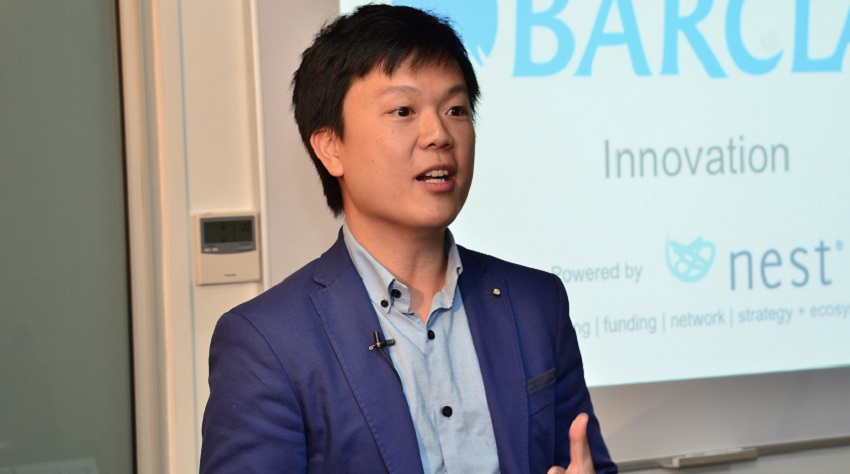Hong Kong-based VC firm Nest commenced operations in Africa with the opening of an office in Nairobi in July, and it hasn’t arrived quietly.
In fact, it’s been quite a rollercoaster since Nest, which services early-stage, high growth businesses, landed in Kenya, which the company will use as a base to roll out accelerator programmes and invest in startups across Africa.
The company partnered co-working spaces Nairobi Garage and Cape Town Garage to offer startups a “soft landing” when visiting Hong Kong, and invited African startups to apply to join its smart cities accelerator in Hong Kong. Two African companies – Kenya’s SuperFluid and South Africa’s Creditable – are already taking part in another Hong Kong programme, held in conjunction with DBS Bank.
Nest – which invests private capital in startups – is a big deal. Founded in Hong Kong in 2010, the company is in the process of expanding, and has also developed a presence in Paris, London and San Francisco this year. It has been a pioneer behind corporate-backed accelerator programmes in Asia, something it is already pursuing in Africa through a partnership with Barclays.
Around 50 companies are already part of Nest’s global ecosystem, but managing partner for Africa Aaron Fu told Disrupt Africa the company was hoping to increase this number “significantly” with African startups.
Fu – who has eight years of experience in financial services and technology across Europe, Asia and Africa, most recently working as regional digital strategy lead for Africa at Standard Chartered Bank in Nairobi – says Nest’s mission is to support entrepreneurs and strengthen the wider startup ecosystem globally.
“The team takes a very hands-on approach with the companies within the portfolio, providing tailored marketing and strategic support, network and funding – elements that businesses across all industries need to succeed. In addition to the direct Nest team startups in the ecosystem can draw on the expertise of Nest’s extensive international mentor network,” he said.
Nest invests in people first, and ideas second, looking to work with founders that have a personal connection to the problem they are trying to solve. For example, one of its companies, Simple Wearables, is building a product where the founder’s grandmother is the ideal test user, while another – Playto – is building a product that will help cure their founder’s child’s illness.
“This element of passion ensures that the founder will do whatever it takes to follow through and to make their business successful,” Fu said.
“Potential for scale is also important to us. This means that most of the companies we invest in use technology as part of their core solution. At the moment Nest is focused on companies from the healthtech, fintech and smart cities sectors.”
The firm typically commits between US$50,000 and US$200,000 in return for between two and 10 per cent equity in a company, though a proportion of the capital investment can be allocated for services-in-kind.
“We do not have a set quota for the number of startups that we must invest in, but we are always looking for the right opportunities and we’re ready to invest when they arise,” Fu said.
“While we do not have to invest in the companies in our accelerators, the programmes are a great way for us to select the most promising talent from within our target industry sectors.”
Sourcing startups is a global affair, with Nest’s expanding presence meaning founders from around the world are now approaching it in search of support. It holds regular pitch days where startups present their ideas, which could then lead to them completing a formal due diligence process.
“In Africa our accelerator programmes and events are gaining a lot of traction and so we are starting to see more startups coming through these channels,” Fu said. “Nest’s typical investments are in early seed or startup phase companies. Ideally they’d have a product and made some sales, but this is not vital.”
Scalability is key, with Nest keen on investing in startups that can go global.
“We are looking for businesses that can quickly replicate their product or service in a number of markets,” Fu said.
“During the vetting process we consider the strength of the product or service, the market opportunities and also the team’s ability to execute on what they have pitched to us. We also consider Nest’s ability to add value to the company. If we don’t think our skills and know-how can benefit then we aren’t likely to invest.”
He is excited about the opportunities for the company in Africa, and impressed by the quality of the startups he has met so far.
“We’ve seen some really cool teams building globally scalable products in Africa, and very often this innovation has been driven by necessity. Specific infrastructure lag has created situations where entrepreneurs have looked to really out-of-the-box solutions to everyday problems, turning situational adversity into opportunity,” Fu said.
“Recently returning from West Africa, I was particularly impressed at the sheer potential for startups in Nigeria. We’ve also noticed a trend of very experienced professionals taking the leap from leading corporate business units to breaking away and solving a problem they are intimately familiar with and have the know-how to integrate into existing players. We find this trend very promising.”
Nest has not set a particular investment amount for Africa, but is instead actively seeking and supporting as many ambitious and committed founders with scalable startup ideas as it can find. Fu certainly believes the company can help with the development of the continent’s startup ecosystem.
“While we don’t have a magic bullet, we do feel that bringing global expertise and experience will go a long way towards helping founders learn how to bootstrap their business, focus on customers, and get to an MVP by sheer hustle,” he said.


